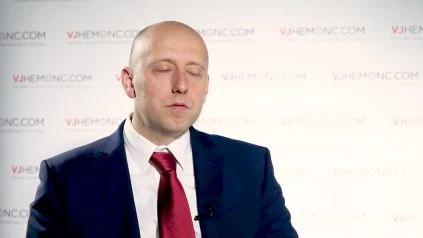DNA sequencing approaches such as next-generation sequencing (NGS) have been found to be particularly useful when diagnosing cancers. These results can then be used to influence therapeutic decisions before the patient begins treatment. At the 2018 Society of Hematologic Oncology (SOHO) Annual Meeting, held in Houston, TX, Christopher Gibson, MD, of Dana-Farber Cancer Institute, Boston, MA, discusses the strengths and limitations of NGS in practice. Dr Gibson highlights the fact that numerous factors such as the patient’s white blood cell count and age must be taken into consideration when using NGS.
Advertisement

